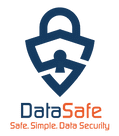The notion that cybersecurity only matters to billion-dollar companies is misconceived. Tech giants or multinational firms face cybersecurity threats often. However, these companies usually have cybersecurity teams and boards to manage the situation. This may not be the case for small businesses. A significant part of small and medium businesses may also face such cybersecurity problems.
As per the survey conducted by CNBC and Momentive, about 43% of small businesses are the target of all data breaches. Due to their lack of proper cybersecurity protections, hackers may find it easier to infiltrate small businesses than large companies with solid data protection securities.
Additionally, about 61% of small and medium businesses experienced cyber-attacks last year. And shockingly, each incident cost them approximately $3 million.
Considering all these facts mentioned above, it’s clear that cybersecurity is definitely something we should give utmost importance to. But before we get into the importance of cybersecurity, let’s understand what cybersecurity is and how it may impact an enterprise.
What Is Cybersecurity
It helps to protect your devices, services, and websites from malware, cybercriminals, and more. Additionally, you should also consider implementing protection against phishing schemes, ransomware attacks, and data breaches that could affect your small business.
In today’s technologically advanced world, data has become the most important thing to be protected. Unauthorized access to data may lead to numerous threats and disruption in services, disclosure of confidential information, reputation damage, and many other troubles.
According to cybercrime magazine, the cost of cybercrimes is predicted to grow by 15% and reach $10.5 trillion by 2025. The risk of cybersecurity problems occurring frequently may accelerate if you don’t take prompt action.
What Makes Small Businesses An Easy Target
Regardless of how big or small a business is, hackers always look for weaknesses and loopholes in security features. Therefore it would rather be ignorant to say that cybercriminals may only find the confidential data of multimillion companies has the potential for financial gains through exploitation.
Numerous reasons make these businesses a likely target. They are:
Customer Data
Many small businesses generally store and manage their customers’ data. Hackers may find it easy to offload them to the dark web. Often, these acquired data may include credit card information, bank account credentials, social security number, medical records, transaction history, and other valuable personal data.
Lack Of Security Support
Unlike large companies with an efficient team to assess any potential threats to their data security, small businesses may assign these duties to other staff who manage the companies’ daily operations. Non-professionals may not be as prompt in judging cybersecurity risks or minor issues as professionals are.
Easy Access To Linked Companies

As many SMBs have connections with large companies, hackers may use these businesses as a gate to get to the big fish. Most of these giant firms are rather hard to breach; therefore, the attackers use the vulnerability of third parties to access the systems of large businesses.
Training Inadequacies
A majority of SMBs focus on having a foothold in the market first. Because of this, they may neglect the need to train employees regarding cybersecurity.
The lack of proper awareness of these attacks may make them more vulnerable. Employees downloading malware unknowingly or failing to keep their login credentials protected are some ways the hackers get through the systems.
Vulnerability To DDoS Attacks
Sometimes, implementing massive distributed denial of service attacks to establish a zombie network is what the hackers focus on. Using a botnet, they create artificial web traffic to disrupt the services and gain access to a broader network of systems.
Potential Threats
Software Vulnerabilities
Hackers use the vulnerabilities in file formats like pdf, CSV, or platforms like WordPress to infiltrate the system. Ignoring the system updates may make it more exposed to threats.
Clickjacking
The attackers may hide hyperlinks to a compromised webpage within legitimate website links. Users might get asked to disclose confidential information, and the hackers utilize the acquired data for their gains.
Threats by Malware
These types of software are intended to cause damage to devices and connected networks.
These viruses and trojans access other devices through spam emails or other infected systems in the network. Such cybersecurity attacks could severely damage the system, and repairing them may often cost a lot of money.
Phishing
This is one of the most common attacks faced by SMBs. The attacker may ask the user to provide account details and personal data or download malicious software through email.
Ransomware
This is another most occurred threat in the history of cyberattacks. The hacker may access and lock the system, making the data inaccessible to the user. The system owners are asked to pay the demanded money by the hacker to regain the data.
Weak Passwords
Setting weak passwords may cause severe business threats. This is because hackers can easily crack them. Data and personal information stored in accounts can be compromised if the company has no strict password policy.
Ways To Prevent The Attacks
There are several things small business owners can do to prevent cybersecurity attacks. They include:
Create a Well-Designed Cybersecurity Policy:
Keep track of who can access data and implement policies to protect the access. Limit the employees’ accessibility of data only to what they require. Enforce methods such as multi-factor authentication, face recognition, and more as part of security policies.
Data Backups
Back up your data regularly to minimize the damages from potential ransomware attacks. Storing your data on hard drives is an excellent way to back them up, which helps the business to regain them in case something gets lost in the future.
Employee Training
Give awareness to the employees regarding potential threats in cybersecurity and make sure they follow all the security policies correctly.
Cybersecurity is essential to any firm, regardless of how big or small they are. Hence it’s crucial to consistently implement the best practices to protect against any data breaches or other potential threats. If you are looking for ways to keep your data secure, contact Data Safe Group. We can provide you with the tools you need to ensure data security.

